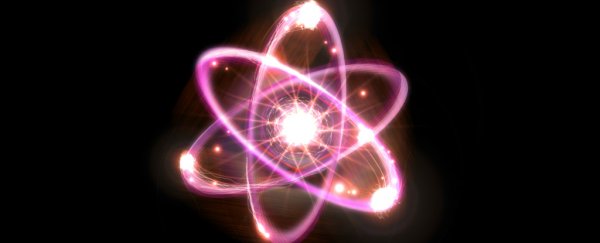For the first time, physicists have been able to accurately predict the future of quantum systems, specifically, the moment they'll fail - long before it actually happens. The information could be used to make powerful quantum technology more accurate and reliable in the future.
If that's a little much to wrap your head around, consider your smartphone - you know one day it's going to break, because technology. Now imagine that you could predict the exact moment in the future when this was going to happen, and then prevent it before it occurs.
That's what physicists from Australia have now achieved for the first time. But instead of mobile phones, they've accurately predicted the future failure of quantum systems, and can stop it from happening.
The main difference between doing this in smartphones and in quantum system is that quantum systems break down a lot more rapidly - and randomly - than smartphones.
"Much the way the individual components in mobile phones will eventually fail, so too do quantum systems," said lead researcher Michael J. Biercuk from the University of Sydney.
"But in quantum technology the lifetime is generally measured in fractions of a second, rather than years."
Quantum technology, such as quantum computers, has the ability to revolutionise the way we live and work. Our regular computers rely on binary 'bits' to process information, which are either in an 'on' or 'off' state (1 or 0).
Quantum bits (or qubits) on the other hand, are made up of atoms trapped inside a tiny chip, and can be in an 'on' or 'off' state, as well as a third state, known as superposition, which makes them far more powerful.
But one of the big problems with quantum technology is that it's unreliable, because the environment around quantum systems randomises them, causing decoherence.
This means that at a random point in time, quantum systems can lose their 'quantumness', and suddenly become useless.
Until now, scientists have had no way of predicting when this will happen, because it's completely influenced by random factors. Not to mention the fact that you can't even measure quantum systems without breaking them.
Here's Biercuk talking about the challenges of predicting quantum systems:
"Humans routinely employ predictive techniques in our daily experience; for instance, when we play tennis we predict where the ball will end up based on observations of the airborne ball," says Biercuk.
This works, because the rules that govern where the ball will go, such as gravity, are predictable and known.
"But what if the rules changed randomly while the ball was on its way to you? In that case it's next to impossible to predict the future behaviour of that ball," Biercuk adds.
"And yet this situation is exactly what we had to deal with because the disintegration of quantum systems is random. Moreover, in the quantum realm, observation erases quantumness, so our team needed to be able to guess how and when the system would randomly break."
"We effectively needed to swing at the randomly moving tennis ball while blindfolded."
To overcome this, the University of Sydney team used machine learning - the same kind of algorithms that mine for patterns in big data - to seek out any information they could use to predict when qubits would break.
It turned out that, no matter how random quantum systems might seem to us, there was enough information in the data for a computer to be able to guess how a qubit would change in future, and, without direct observation, predict when it would fail.
The team then compared these predictions with when real qubits broke down, and found that they were startlingly accurate. Not only that, but they could also compensate for the anticipated changes to stop the system breaking down in the first place.
Going forward, if scientists can do this in real time, it will make qubits a lot more reliable and stable, and could help make quantum computers a reality sooner rather than later.
"We know that building real quantum technologies will require major advances in our ability to control and stabilise qubits - to make them useful in applications," says Biercuk.
"We're excited to be developing new capabilities that turn quantum systems from novelties into useful technologies. The quantum future is looking better all the time."
Bring it on.
The research is being published in Nature Communications this week, and is available in full online at arXiv.org.
